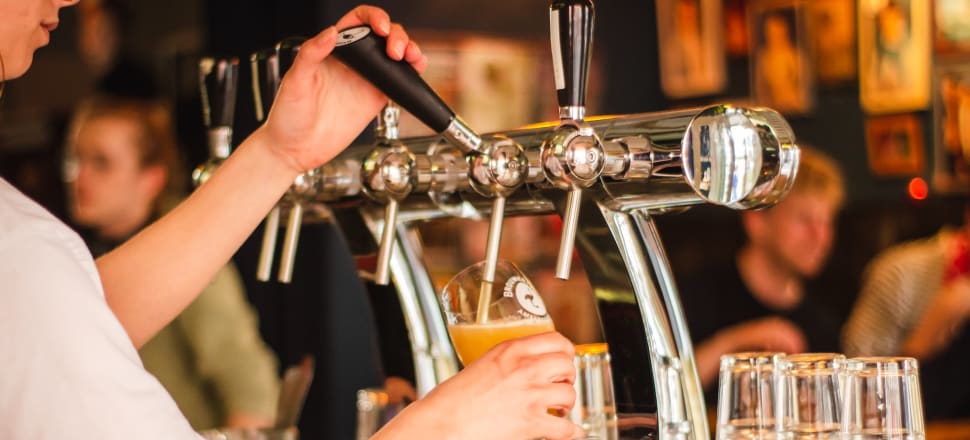
Your favourite craft beer will be more expensive, but that box of green bottles will be about the same price
When Hallertau had to hike the price of its beer quite significantly last year, Steve Plowman thought it would see the business through the next few years, but the business is faced with doing it all over again.
The closure of New Zealand’s only significant co2 manufacturing plant saw the price of the gas, used to give beer its fizz, increase 400 percent for Hallertau last week.
The increase comes as the business deals with supply chain disruption and increased costs for key ingredients such as barley and malt stemming from the war in Ukraine.
READ MORE: * Pak’nSave’s 67c beers are ‘simply irresponsible’ * Govt review looks at returning wine and beer to corner stores * Food security at the heart of our cost of living crisis
The huge increase in the excise tax on beer last year, going up 6.9 percent (a 30-year record) in line with CPI, is also set to repeat itself. In years where inflation sits around 2 percent or 3 percent this excise tax can be absorbed or passed onto consumers with no stress.
Increasingly expensive transport costs are another factor in play.
Plowman, who sells the majority of his beer through on-licence/hospitality channels including his own locations, said his previous price hike had a negative impact on his business.
“In the on-premise environment, all of a sudden you're expecting people to pay $12, $13 or $14 for a pint. They'll have one and then maybe they won't have the second one, they'll just go home.”
Plowman said Hallertau had absorbed all of the cost increases it possibly could last year.
“After a couple of crappy years there's not a lot of reserves left in the tank, any price increase that hits us has to be passed on quite directly, otherwise at the end of the month there's nothing left in the bank.”
Gisborne’s Sunshine Brewing Company, the business behind the region’s iconic Gisborne Gold tin as well as a range of craftier beers, is also facing price hikes.
Sunshine manager Kahu Jakicevich said malt prices were up between 4 percent and 6 percent, gas prices were tight and a big excise increase was coming, “Unfortunately we can't wear the weight of all these costs and we'll just have to pass it on to the consumers at some point.”
Liberty Brewing Company is also expecting to have to hike its prices in the coming months.
Sales manager Fred Tomas said the business had increased its prices in line with the excise tax last year and he was going to have to start doing the numbers on another increase this year.
He said increasing prices and refreshing agreements with retailers was a lot of work that couldn’t be done often.
Mainstream brands
Obviously, people drinking less is good in a social sense, but the bulk of the market, being the mainstream brands, has a greater ability to absorb cost increases because of economies of scale and balance sheet strength.
Tomas said people still drank alcohol in tough economic times, but would substitute quality for quantity or value – craft beer drinkers would go down to Heineken or Steinlager, while the Heineken drinkers might buy cheaper options such as Lion Red or Speight's.
“Craft go to green and green go to brown.”
Tomas said the big brands would do what it takes to maintain or grow their market share in this sort of cycle.
Plowman also expected these pressures would be felt more by boutique brands than the more affordable or mainstream brands.
“Our co2 went up 400 percent last week and it’s still being rationed, but big breweries recapture all their own co2 so they're not as affected by this price increase.”
He also believed the multinationals would be willing and able to not make as much money on a product or to even lose money temporarily to maintain market share.
“We're much more vulnerable to price increases.”
The Brewers Association director Dylan Firth, who advocates on behalf of two of New Zealand’s big three brewers Lion and DB Breweries (Asahi is the third), said the larger breweries have more economies of scale and ability to purchase the inputs.
“We are likely to see some of these cost pressures affecting the smaller brewers more in the short term.”







